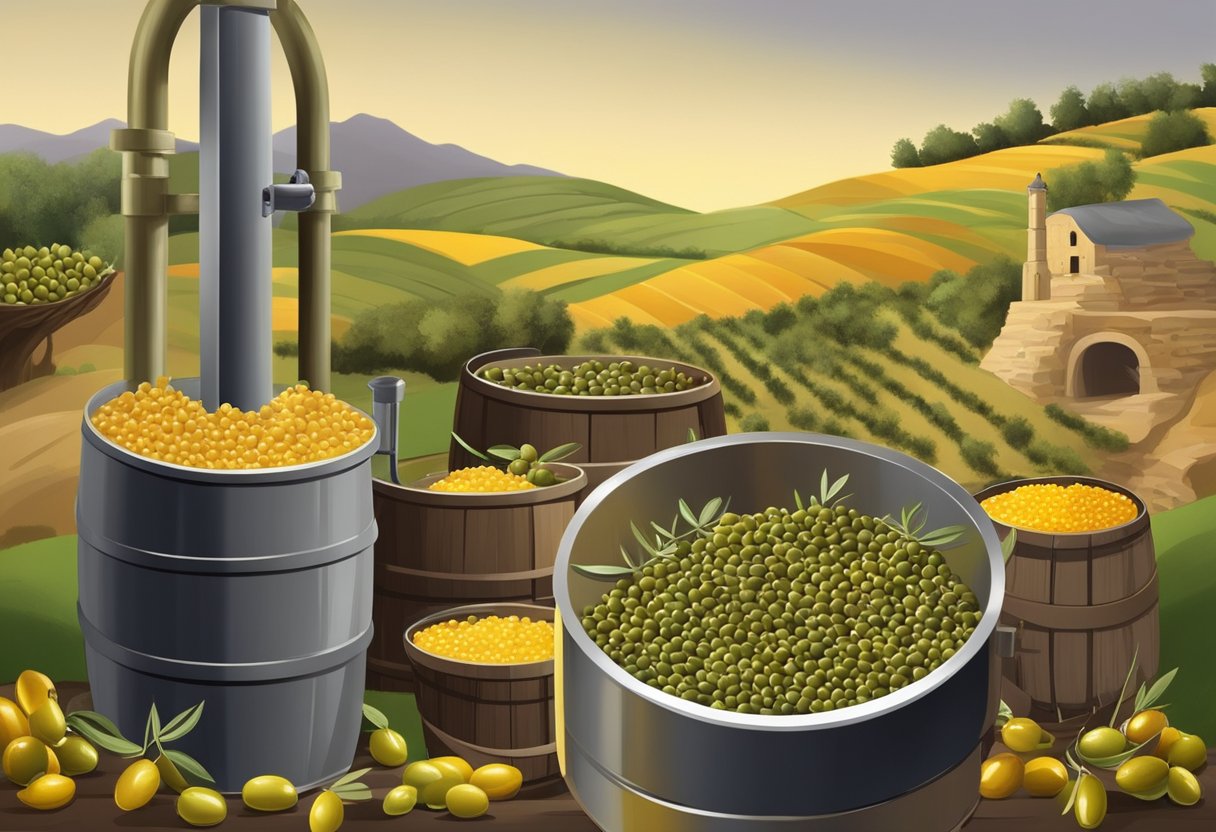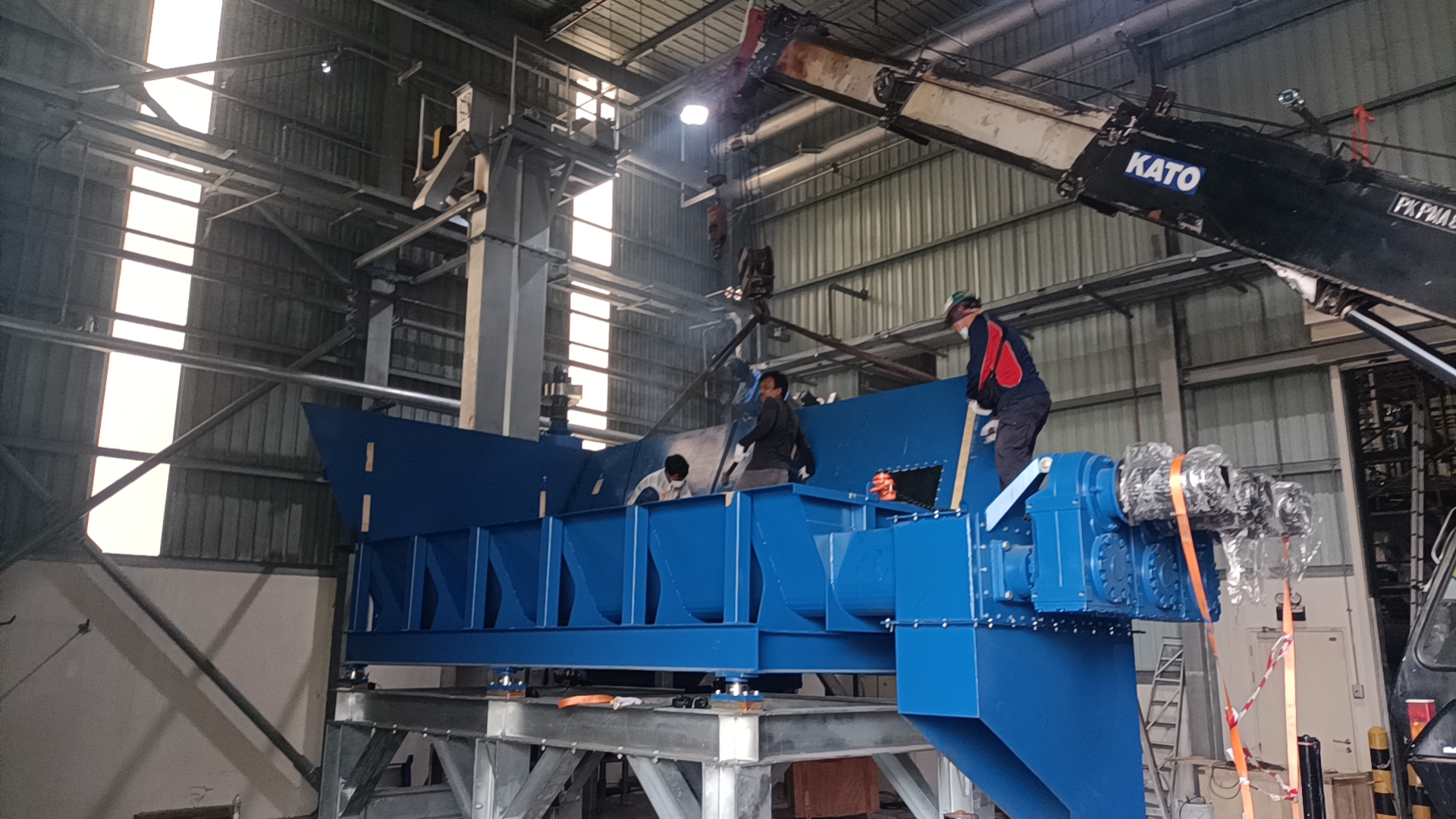
Oil Press: A Comprehensive Guide to Choosing and Using the Right Machine
Oil Press: A Comprehensive Guide to Choosing and Using the Right Machine
Oil press is a machine used to extract oil from various seeds and nuts. The oil extracted can be used for cooking, as a fuel for lamps, and in the manufacturing of soap and cosmetics. Oil press machines have been used for centuries, and with the advancement of technology, they have become more efficient and easier to use.

The process of extracting oil from seeds and nuts using an oil press involves crushing the seeds or nuts and then applying pressure to them to extract the oil. The extracted oil is then collected and filtered to remove any impurities. Different types of seeds and nuts require different types of oil press machines, and some machines can be used for multiple types of seeds and nuts.
Oil press machines have become increasingly popular in recent years due to the growing interest in natural and organic products. Many people are now choosing to make their own oil at home using an oil press machine, which allows them to have control over the quality and purity of the oil they use. Additionally, using an oil screw press machine is a more sustainable option as it reduces the reliance on commercially produced oil, which often involves the use of harmful chemicals and unsustainable farming practices.
History of Oil Pressing

Oil pressing has been around for thousands of years, with evidence of oil extraction dating back to ancient civilizations such as the Egyptians and Greeks. The earliest known method of oil pressing involved using a mortar and pestle to crush the seeds or nuts, and then extracting the oil by hand.
In the 1800s, mechanical presses were developed, allowing for greater efficiency and higher yields. These presses used a screw mechanism to apply pressure and extract the oil. The first hydraulic press was invented in the late 1800s, which further improved the efficiency of oil pressing.
During the 1900s, oil pressing became a major industry, with large-scale production facilities and advanced machinery. Today, oil pressing is still a common method of extracting oil from seeds and nuts, although newer technologies such as solvent extraction and supercritical CO2 extraction have also become popular.
Overall, the history of oil pressing is a long and fascinating one, with many innovations and advancements along the way. Despite the introduction of newer extraction methods, oil pressing remains an important and widely used technique for producing high-quality oils.
Types of Oil Presses

Hydraulic Presses
Hydraulic oil presses are high-pressure machines that use hydraulic cylinders to apply force to the oilseeds. The pressure generated by the hydraulic cylinder squeezes the oil out of the seeds. They are commonly used for processing large quantities of oilseeds, such as sesame, peanut, and rapeseed. Hydraulic presses are known for their high efficiency and yield, but they are also expensive and require a lot of maintenance.
Screw Presses
Screw oil presses are the most common type of oil press. They use a screw-like device to crush the oilseeds and extract the oil. The screw rotates inside a barrel, which contains the oilseeds. As the screw turns, it crushes the seeds, and the oil flows out through small holes in the barrel. Screw presses are versatile and can be used for a wide range of oilseeds, including sunflower, soybean, and cottonseed.
Centrifugal Presses
Centrifugal oil presses use centrifugal force to extract oil from the seeds. The oilseeds are placed in a rotating drum, which spins at high speed. The centrifugal force generated by the spinning drum separates the oil from the seeds. Centrifugal presses are fast and efficient, but they are not suitable for all types of oilseeds. They are commonly used for processing olives and other fruits.
In summary, there are three main types of oil presses: hydraulic presses, screw presses, and centrifugal presses. Each type has its advantages and disadvantages, and the choice of press depends on the type of oilseed and the desired yield.
Oil Press Operation

Preparation of Raw Materials
Before operating an oil press, it is important to properly prepare the raw materials. This involves cleaning and drying the seeds or nuts to remove any dirt or debris. If necessary, the seeds or nuts can also be roasted to improve the oil yield and flavor.
Pressing Process
Once the raw materials are prepared, they can be fed into the oil press. The pressing process involves applying pressure to the seeds or nuts to extract the oil. This can be done using a variety of methods, including a screw press, hydraulic press, or manual press.
During the pressing process, it is important to monitor the temperature and pressure to ensure that the oil is extracted efficiently and without any damage to the oil or press. The oil press may need to be adjusted or cleaned periodically to maintain optimal performance.
Oil Collection and Filtration
After the oil has been extracted, it needs to be collected and filtered. This involves separating the oil from any remaining solids or impurities. The oil can be collected in a container or directly piped to a storage tank.
The oil can then be filtered using a variety of methods, such as using a filter press or settling tank. This helps to remove any remaining impurities and ensure that the oil is of high quality.
Overall, operating an oil press requires careful preparation and monitoring to ensure that the oil is extracted efficiently and of high quality. By following proper procedures and using the appropriate equipment, anyone can produce their own high-quality oil at home.
Materials and Build Quality
Construction Materials
Oil presses are typically made of high-quality materials that are designed to last. The most common materials used in their construction include stainless steel, cast iron, and aluminum. Stainless steel is a popular choice due to its durability, resistance to corrosion, and ease of cleaning. Cast iron is also a popular choice due to its strength and durability, but it requires more maintenance to prevent rust. Aluminum is lightweight and easy to handle, but it is not as durable as stainless steel or cast iron.
Durability and Maintenance
When it comes to durability, oil presses are built to withstand heavy usage over extended periods of time. However, regular maintenance is required to keep them in good working condition. The maintenance required will depend on the type of press and the materials used in its construction. For example, stainless steel presses require less maintenance than cast iron presses, which require regular seasoning to prevent rust.
To ensure the longevity of an oil press, it is important to follow the manufacturer’s instructions for maintenance and cleaning. Regular cleaning of the press and its components is essential to prevent the buildup of residue and contaminants. Additionally, oil presses should be stored in a dry, cool place to prevent rust and other forms of damage.
Overall, the materials and build quality of an oil press are important factors to consider when selecting a press for your needs. By choosing a press made of high-quality materials and following proper maintenance procedures, you can ensure that your press will provide reliable performance for years to come.
Applications of Oil Presses
Culinary Oils
Oil presses are widely used in the food industry for extracting oils from various types of seeds and nuts. These oils are used for cooking, baking, and frying. Some of the most common culinary oils produced by oil presses include olive oil, sunflower oil, coconut oil, and peanut oil.
Olive oil is known for its high content of monounsaturated fatty acids, which are believed to have health benefits. Sunflower oil is a good source of vitamin E, while coconut oil is high in saturated fats. Peanut oil is often used for frying due to its high smoke point.
Industrial Oils
Oil presses are also used in the production of industrial oils. These oils are used in a variety of applications, including lubricants, biodiesel, and hydraulic fluids. Some of the most common industrial oils produced by oil presses include castor oil, palm oil, and soybean oil.
Castor oil is used as a lubricant in high-speed engines and aircraft. Palm oil is used in the production of biodiesel, while soybean oil is used in the production of hydraulic fluids.
Cosmetic Industry
Oil presses are also used in the cosmetic industry for extracting oils that are used in skincare and haircare products. These oils are believed to have moisturizing and nourishing properties. Some of the most common oils produced by oil presses for the cosmetic industry include argan oil, jojoba oil, and avocado oil.
Argan oil is rich in antioxidants and is believed to have anti-aging properties. Jojoba oil is similar in composition to human sebum and is often used in moisturizers. Avocado oil is high in oleic acid and is believed to have moisturizing and regenerative properties.
Overall, oil presses have a wide range of applications in various industries. They are used to produce oils that are used in cooking, industrial applications, and cosmetics.
Market Trends and Demands
The demand for oil press machines has been steadily increasing over the past few years due to the growing awareness of the health benefits associated with consuming fresh and pure oil. The global market for oil press machines is expected to grow at a CAGR of 4.5% during the forecast period 2021-2026.
There is a growing trend towards the use of cold-pressed oils, which are extracted using a hydraulic press at low temperatures. Cold-pressed oils are preferred over traditional hot-pressed oils as they retain more nutrients and have a better taste. This trend has led to an increase in the demand for hydraulic oil press machines.
The rising demand for organic and natural products has also contributed to the growth of the oil press market. Consumers are becoming more health-conscious and are willing to pay a premium for products that are organic and free of chemicals. This has led to an increase in the demand for oil press machines that can extract oil from organic seeds and nuts.
In addition, the growing popularity of plant-based diets has also contributed to the growth of the oil press market. Plant-based diets are becoming more mainstream as people become more aware of the health benefits associated with a diet rich in fruits, vegetables, and nuts. This has led to an increase in the demand for oil press machines that can extract oil from a variety of nuts and seeds.
Overall, the oil press market is expected to continue to grow as consumers become more health-conscious and demand for organic and natural products continues to rise. Manufacturers are expected to focus on developing more efficient and user-friendly oil press machines to meet the growing demand.
Environmental Impact and Sustainability
Waste Management
Oil press machines have a significant impact on the environment, especially in terms of waste management. The process of extracting oil generates a large amount of waste, including oilseed meal, which is the solid residue left after the oil has been extracted. This waste can be used as animal feed, but it can also be a source of pollution if not properly disposed of.
To address this issue, some oil press manufacturers have developed innovative waste management techniques. For example, some machines are equipped with a filter press that separates the oil from the solid waste. This makes it easier to dispose of the waste and reduces the amount of waste that needs to be disposed of.
Energy Efficiency
Energy efficiency is another important factor to consider when evaluating the environmental impact of oil press machines. The process of extracting oil requires a significant amount of energy, which can contribute to greenhouse gas emissions and other environmental problems.
To address this issue, some oil press manufacturers have developed machines that are more energy-efficient. For example, some machines use a hydraulic system to extract oil, which requires less energy than traditional methods. Additionally, some machines are equipped with energy-saving features, such as automatic shut-off systems and energy-efficient motors.
Overall, the environmental impact of oil press machines depends on a variety of factors, including the type of machine, the waste management techniques used, and the energy efficiency of the machine. By choosing machines that are designed with sustainability in mind, individuals and businesses can reduce their environmental impact while still enjoying the benefits of oil extraction.
Regulations and Standards
Oil press machines are regulated by various organizations and government bodies to ensure safety and quality. The following are some of the regulations and standards that oil press machines must adhere to:
- CE Marking: Oil press machines manufactured and sold in the European Economic Area (EEA) must have a CE marking. This marking indicates that the machine meets the safety, health, and environmental protection requirements set by the European Union.
- ISO 9001: Oil press machine manufacturers may obtain ISO 9001 certification, which is an international standard for quality management systems. This certification ensures that the manufacturer has implemented a quality management system that meets customer and regulatory requirements.
- UL Listing: Oil press machines sold in the United States may obtain a UL listing, which is a safety certification issued by Underwriters Laboratories. This certification ensures that the machine meets safety standards set by UL.
- FDA Regulations: Oil press machines used for food production in the United States must comply with regulations set by the Food and Drug Administration (FDA). These regulations ensure that the machine is safe for use in food production and does not contaminate food.
- National Standards: Many countries have their own national standards for oil press machines. For example, China has a national standard for oil press machines that specifies safety requirements, performance requirements, and test methods.
Adherence to these regulations and standards ensures that oil press machines are safe and of high quality. It is important to check for compliance with these regulations and standards when purchasing an oil press machine.



